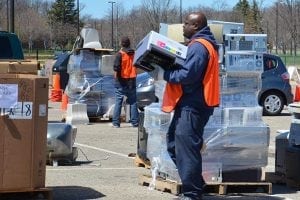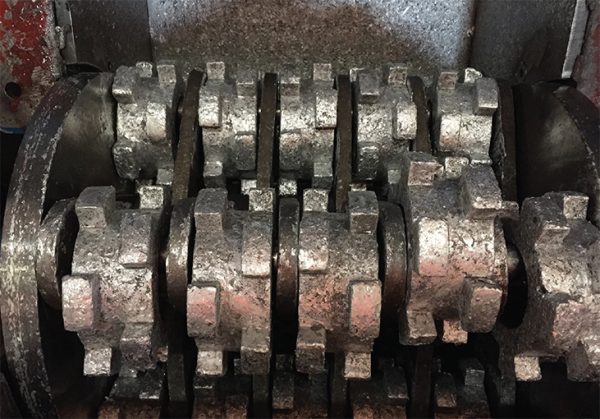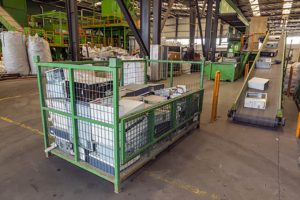 Apple has been penalized by the Australian government for attempting to mislead consumers on whether device warranties are still effective once the device has been serviced by a non-Apple-authorized repair entity.
Apple has been penalized by the Australian government for attempting to mislead consumers on whether device warranties are still effective once the device has been serviced by a non-Apple-authorized repair entity.

 Colin Staub was a reporter and associate editor at Resource Recycling until August 2025.
Colin Staub was a reporter and associate editor at Resource Recycling until August 2025. Apple has been penalized by the Australian government for attempting to mislead consumers on whether device warranties are still effective once the device has been serviced by a non-Apple-authorized repair entity.
Apple has been penalized by the Australian government for attempting to mislead consumers on whether device warranties are still effective once the device has been serviced by a non-Apple-authorized repair entity.
 Many developments related to the Chinese recycling import market have taken place in recent weeks. The following is a look at key updates related to scrap materials, including from electronics.
Many developments related to the Chinese recycling import market have taken place in recent weeks. The following is a look at key updates related to scrap materials, including from electronics.

A sample of products containing bromine, as found by researchers.
A researcher has found black e-plastics are being recycled into a variety of household applications, despite still containing additives that he says could be hazardous.

Legislation supporting retrievable storage as a downstream outlet for CRT glass has advanced in Illinois, and certification standards organizations are concerned – one may even consider withdrawing its program from the state.
 It’s been 15 years since California’s e-scrap program was launched, and those years have brought significant changes to the end-of-life device stream. Now, administrators of the country’s first state program have adopted a vision for the future.
It’s been 15 years since California’s e-scrap program was launched, and those years have brought significant changes to the end-of-life device stream. Now, administrators of the country’s first state program have adopted a vision for the future.
 A company that has developed a bio-metallurgical recovery process for e-scrap is seeking investors to help the business scale up its operations, after reporting successful tests of the process.
A company that has developed a bio-metallurgical recovery process for e-scrap is seeking investors to help the business scale up its operations, after reporting successful tests of the process.
 Researchers have compiled data on the global generation of used and end-of-life electronics, with an eye toward determining what the future e-scrap landscape will look like.
Researchers have compiled data on the global generation of used and end-of-life electronics, with an eye toward determining what the future e-scrap landscape will look like.
 China supplies components for a lot of equipment used in the U.S. recycling industry, meaning tariffs on Chinese imports would be felt across many recycling sectors, according to an industry association.
China supplies components for a lot of equipment used in the U.S. recycling industry, meaning tariffs on Chinese imports would be felt across many recycling sectors, according to an industry association.
 Processors handling non-CRT devices will be paid 60 cents a pound by the state of California, a 22 percent increase over their current payment rate.
Processors handling non-CRT devices will be paid 60 cents a pound by the state of California, a 22 percent increase over their current payment rate.
 Minnesota’s state program has released data on its first full year since legislation significantly altered the program. Although manufacturer recycling obligations are up, the volume of material recycled has fallen.
Minnesota’s state program has released data on its first full year since legislation significantly altered the program. Although manufacturer recycling obligations are up, the volume of material recycled has fallen.
